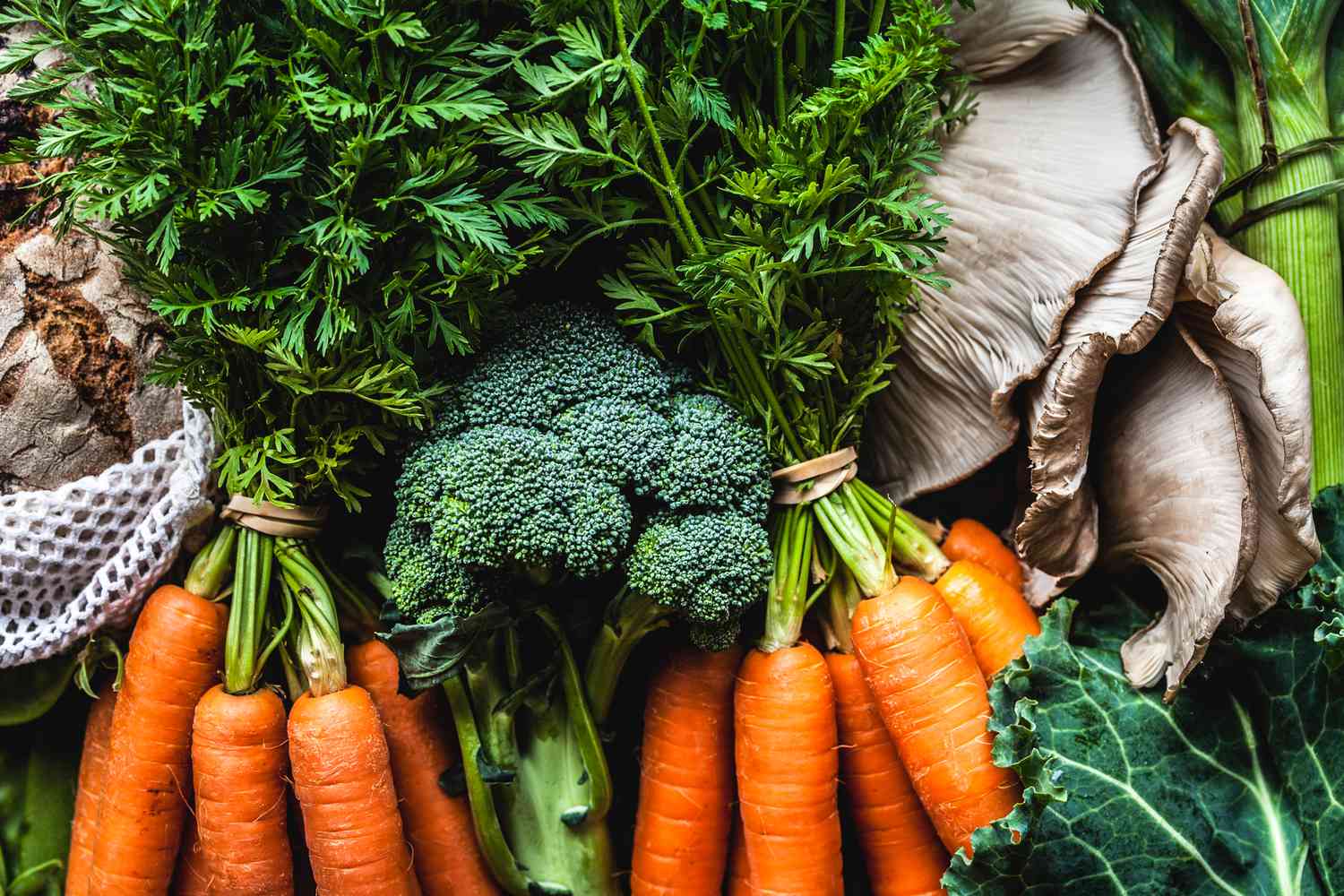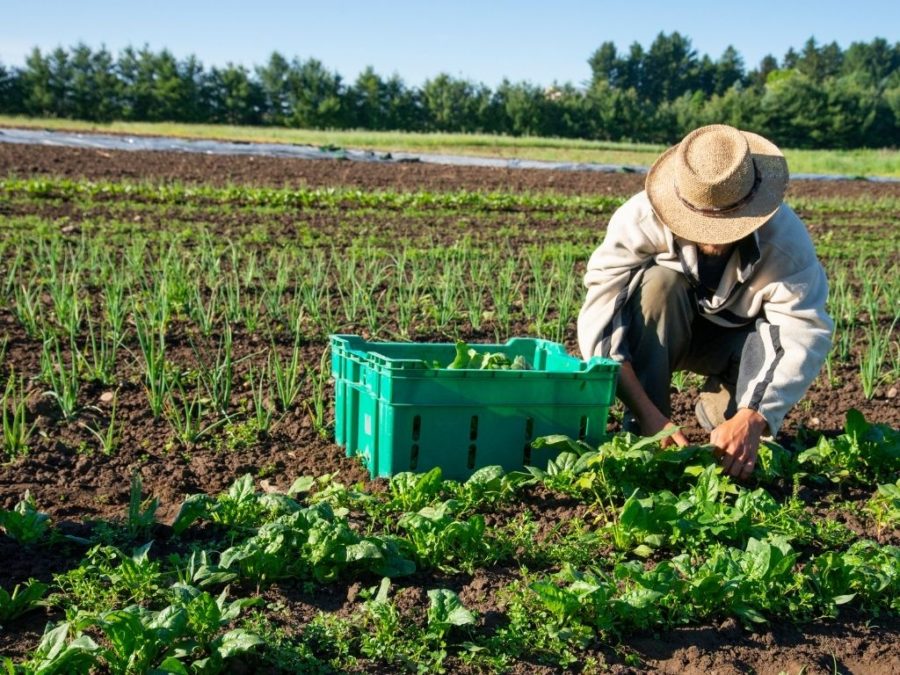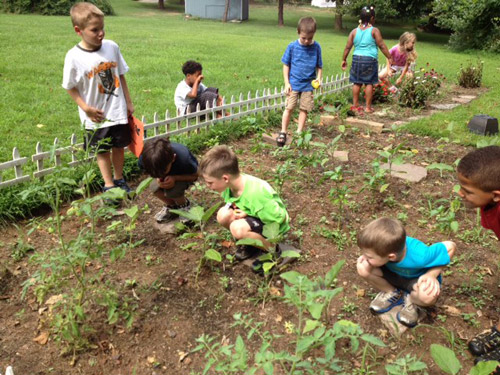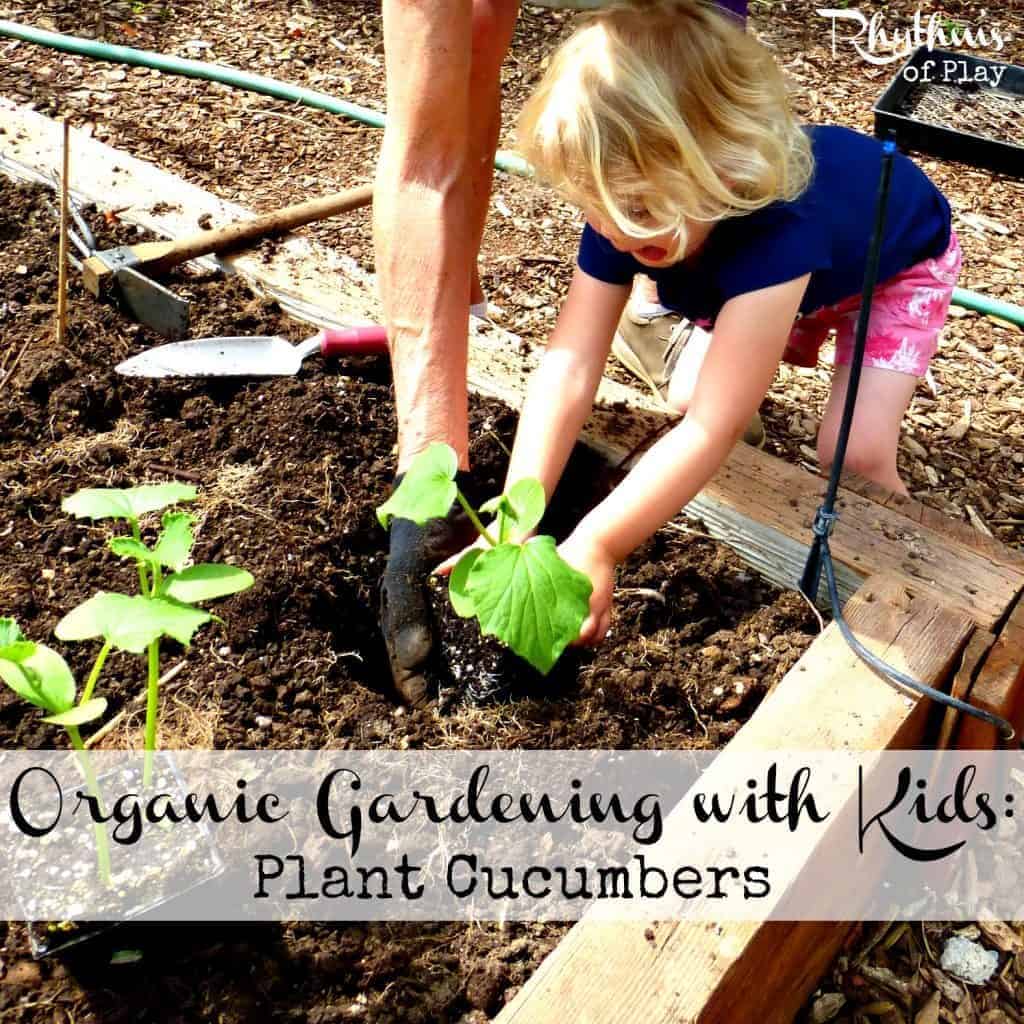Introduction to Organic Gardening for Kids: Fun Ways to Grow Green Thumbs. Discover fun & easy ways for kids To explore organic gardening! This guide helps young gardeners grow green thumbs while learning about nature & healthy eating.
What is Introduction To Organic Gardening for Kids: Fun Ways To Grow Green Thumbs & how does it work?
Organic gardening engages young minds. This concept revolves around growing plants without synthetic chemicals. Children learn about nature through hands-on experiences. They explore soil, seeds, & plants. Understanding ecosystems fosters environmental awareness. Kids observe cycles involving growth, decay, & renewal. Enjoying fruits & vegetables promotes healthier eating habits. Skills gained here often last a lifetime.

Brief history of Introduction To Organic Gardening for Kids: Fun Ways To Grow Green Thumbs
Gardening roots extend back for centuries. Ancient civilizations relied on sustainable practices. Organic approaches began gaining popularity in early 20th century. Awareness of harmful chemicals grew among gardeners. In recent years, schools embraced gardening programs. Risky chemicals became less appealing, especially for children. Increased interest strengthens community connections through gardening.
How To implement Introduction To Organic Gardening for Kids: Fun Ways To Grow Green Thumbs effectively
First, create a small garden space. Raised beds or containers work well. Select easy-To-grow plants such as radishes, herbs, or sunflowers. Begin by teaching kids about seed planting techniques. Watering, weeding, & harvesting provide vital lessons. Encourage kids To document their gardening journeys. Journals enhance their understanding & creativity. Organize workshops or field trips for additional learning experiences.
Key benefits of using Introduction To Organic Gardening for Kids: Fun Ways To Grow Green Thumbs
Engaging children in gardening fosters many benefits. Firstly, they gain knowledge about nutrition. Gardening promotes physical activity & outdoor play. Additionally, kids enhance their problem-solving skills. Enhancing social interaction occurs through group projects. Enjoying nature improves mental well-being & relaxation. Building patience & responsibility becomes part of gardening.
Challenges with Introduction To Organic Gardening for Kids: Fun Ways To Grow Green Thumbs & potential solutions
Gardening presents several challenges for young gardeners. Limited space often poses a barrier. Container gardening or community plots offer solutions. Weather conditions can be unpredictable. Choosing resilient plants helps mitigate this issue. Pests may threaten plants, prompting essential learning moments. Promote safe, organic pest control methods. Retaining kids’ interest may also be hard. Plan regular activities & celebrate successes To maintain excitement.
Future of Introduction To Organic Gardening for Kids: Fun Ways To Grow Green Thumbs
As technology evolves, gardening methods adapt. Innovations may include smart gardening tools. Online resources for education & inspiration multiply. Urban gardening continues gaining traction among young people. Schools likely emphasize benefits of growing food sustainably. Communities may collaborate more on gardening projects. Children will likely find new, creative ways To engage with nature.

Understanding Organic Gardening for Kids
Organic gardening encourages children’s interaction with nature. This sustainable approach promotes responsibility, patience, & knowledge. Engaging kids through hands-on activities fuels interest in plants & ecosystems.
Let children discover joy in growing food. Creative experiences await through organic methods. Kids learn about soil health, biodiversity, & ecosystem balance. For more detailed information on organic gardening, visit Earth Sally.
Kids often connect better with nature through tangible experiences. Gardening offers opportunities for exploration & fun. Children learn valuable skills such as critical thinking & problem-solving while tending gardens.
Benefits of Organic Gardening
Healthier Food Choices
Children involved in gardening develop a preference for healthy foods. They experience firsthand how fruits & vegetables grow. This experience boosts confidence in trying new foods. Fresh produce tastes better than store-bought alternatives.
Gardening also raises awareness of nutrition. Kids understand how food choices impact overall health. By nurturing plants, they feel more connected To food sources. This connection fosters lasting habits that promote healthy eating.
Encouraging kids To snack on freshly-picked produce reinforces positive behaviors. They become more inclined towards vegetables. Growing their own food motivates children. They learn To appreciate hard work leading To delicious rewards.
Enhanced Learning Opportunities
Gardening provides unique educational experiences. Children develop important skills across various subjects. Science lessons come alive through gardening activities. Kids observe plant growth & learn about ecosystems & climates.
Math skills improve while measuring planting areas or counting seeds. Language development occurs through gardening-related discussions & writing activities. Each aspect contributes towards comprehensive learning.
Artistic expression flourishes in garden design. Children can create plant labels, illustrate their gardening journeys, & design layouts. Creativity plays a vital role in making learning enjoyable & meaningful.
Physical Activity & Well-being
Gardening encourages physical activity. Children engage in digging, planting, weeding, & watering. This movement promotes fitness & overall well-being. Outdoor time fuels energy levels & enhances mood.
Studies indicate that outdoor activities benefit mental health. Kids develop skills in problem-solving by facing various gardening challenges. Experiences outdoors expose them To fresh air & sunlight.
Active time outdoors reduces stress & anxiety. Engaging with nature fosters a sense of calm & peace. Physical benefits can lead To healthier lifestyle choices later in life.
Fun Activities for Kids in Organic Gardening
Starting a Garden
Choosing a spot for a garden excites kids. Involve them in site selection & preparation. Clear debris, amend soil, & plan layout together. Preparation provides excellent starting points for conversations.
The selection of seeds becomes an engaging decision. Kids may choose favorite vegetables or flowers. Consider incorporating themes into garden design. Themes heighten creativity & make planning enjoyable.
Once prepared, let kids plant seeds or seedlings. They learn about proper spacing & care. This hands-on activity builds lifelong connections with plants & gardening techniques.
Exploring Nature Through Gardening
Gardening offers countless opportunities for exploration. Children can observe insects, birds, & other wildlife. Engaging with nature fosters curiosity & respect for ecosystems.
Identify critters found in gardens. Discuss their roles in maintaining healthy plants. Children can study life cycles, biodiversity, & interconnectedness within ecosystems.
Encourage kids To keep journals of discoveries. Recording observations enhances learning while creating lasting memories. This activity sharpens visual & writing skills as well.
Creating Garden Art
Art integration makes gardening exciting. Encourage kids To create plant markers or garden decorations. They express creativity while personalizing their spaces.
Use recycled materials for sustainable art. Kids can design wind chimes or painted rocks. These projects make gardening visually appealing & memorable.
Invite children To paint pots or create garden signs. Artistic expression brings joy. It encourages ownership & pride in their gardening achievements.
Different Types of Organic Gardens
Container Gardening
Container gardens suit limited spaces. They require minimal effort, making gardening accessible for families. Kids enjoy planting flowers, herbs, or vegetables in pots.
Wide-ranging container types abound. Clay, plastic, or wooden options cater To preferences. Involve children in selecting containers based on aesthetics & functionality.
Container gardening allows kids creativity while controlling soil quality. Children learn about plant care, watering, & sunlight needs. This format provides instant rewards with manageable gardening projects.
Raised Bed Gardening
Raised beds enhance accessibility & aesthetics. Construct beds together with children. They enjoy selecting materials, measuring dimensions, & choosing plants.
Creating individual plots fosters responsibility & ownership. Each child can care for their designated area. This concept teaches boundaries while emphasizing teamwork.
Raised beds require less bending & stooping. Kids enjoy easier access. They also experience improved soil drainage & nutrients for healthy plants. Encourage experimentation in this gardening format.
Vertical Gardening
Vertical gardens optimize limited spaces creatively. Using walls or fences provides unique gardening experiences. Incorporating hanging pots & wall planters excites children.
Involve kids in selecting vertical gardening projects. They can plant climbing vegetables, flowers, or herbs. This method combines aesthetics with functionality, engaging children on multiple levels.
Vertical gardening demonstrates innovative techniques. Children discover essential lessons about plant growth. They learn how plants adapt To diverse environments while expanding gardening knowledge.
Engaging Kids with Organic Gardening
Starting a Garden Club
A garden club fosters community & collaboration. Kids can share their experiences & ideas. This environment promotes teamwork while nurturing friendships.
Clubs allow for organized activities. Consider planning field trips To local gardens. These excursions will inspire children & spark curiosity. This experience creates lasting memories.
Encourage kids To participate in club projects. Planting flowers or vegetables together builds unity. This shared mission fosters responsibility & a sense of accomplishment.
Hosting a Gardening Day
Organize a gardening day for families. Create an event where kids can showcase projects. Invite parents & community members To celebrate achievements.
Offer hands-on workshops during this event. Kids can lead activities while sharing their newfound knowledge. This approach builds confidence while reinforcing learning experiences.
Include fun games & activities related To gardening. Use scavenger hunts or trivia contests as engaging opportunities. Such activities create excitement & enhance kids’ enthusiasm.
Gardening Competitions
Consider holding friendly competitions among kids. Categories can include tallest plant, most fruitful garden, or creative designs. Competitions motivate kids while encouraging teamwork & healthy rivalry.
Celebrate achievements with awards or certificates. Recognition boosts confidence & enthusiasm. Kids will feel proud of their efforts & accomplishments.
Engaging kids through friendly competitions cultivates a spirit of cooperation. They can learn from each other, share knowledge, & inspire one another. These experiences enhance memories while growing green thumbs.
Learning Resources for Kids
Books on Gardening
Books serve as invaluable resources for young gardeners. Numerous titles provide engaging narratives & illustrations. Children will discover fascinating information about plants & gardening.
Select age-appropriate books for various learning levels. Encourage reading sessions where children can explore new ideas. This practice fosters dialogue & idea sharing among young gardeners.
Consider reading books that inspire curiosity about organic gardening methods. Explore stories about famous gardeners or diverse plant species. All these themes ignite children’s passion for nature.
Interactive Websites & Apps
Technology offers numerous resources for learning. Websites & apps can enhance children’s gardening experiences. Online platforms provide engaging activities & information about plant care.
Provide kids with opportunities To explore gardening apps. Many facilitate plant identification, growing tips, & garden planning. They blend technology while maintaining a focus on nature.
Blogs & online communities encourage sharing experiences. Kids can connect with fellow young gardeners. Forming friendships allows for exchanging tips & fun stories.
Workshops & Classes
Offering workshops ensures hands-on experiences remain accessible. Local gardens may provide classes tailored for kids. Kids will learn vital gardening skills while engaging with expert instructors.
Workshops can cover topics like composting, planting techniques, & pest management. Children develop practical skills while gaining confidence in their gardening abilities. Motivation grows as they master various techniques.
Group classes foster collaboration among children. They share insights, build teamwork, & encourage one another. All these factors help strengthen their connection To gardening.
Valuable Gardening Tips for Kids
Choosing The Right Plants
Plant choice influences successful gardening experiences. Kids should select easy-To-grow varieties. Understanding local climate & growing conditions helps ensure thriving plants.
Start with fast-growing options like radishes, lettuce, or sunflowers. These options provide instant gratification, encouraging continued interest in gardening. Success breeds passion.
Engage kids in researching plants. Explore native species that support local ecosystems. Enthusiasm increases when children recognize their contributions toward coexisting with nature.
Establishing a Gardening Routine
Regular routines benefit young gardeners. Encourage kids To create schedules for watering, weeding, & harvesting. Consistency builds responsibility & fosters ownership.
Visual reminders can assist with maintaining routines. Kids may create charts or checklists. This practice reinforces their commitment while developing organizational skills.
Engaging children in discussions about plant growth rates promotes patience. Understanding that plants need time nurtures gratitude. Kids will learn perseverance as they wait for rewards of their efforts.
Creating a Gardening Journal
Journaling encourages reflection on gardening experiences. Kids can document progress & challenges faced. This practice nurtures critical thinking & cognitive development.
Encourage kids To describe observations about plants, weather, & wildlife. This activity enhances communication skills while deepening their connection To nature.
Artistic elements can enhance gardening journals. Children may include drawings, photos, or other creative elements that reflect personal experiences. This approach makes journaling fun & engaging.
Gardening Safety for Kids
Understanding Safe Practices
Safety remains a priority during gardening activities. Kids should understand proper tool usage & handling. Always supervise when using gardening tools or big equipment.
Discuss safety gear with kids. Hats, gloves, & sunscreen protect against sun exposure. Encouraging protective measures creates awareness of outdoor safety.
Identify plants that may pose health risks. Teaching children about potentially harmful plants empowers them. This knowledge fosters respect for plants & promotes safety awareness.
Encouraging Hydration
Keep kids hydrated during gardening activities. Teach them how essential water plays a role in maintaining energy levels. Encourage regular breaks for drinking water.
Remind children To recognize signs of fatigue or dehydration. Their well-being remains paramount. Create shaded areas for refreshing breaks during outdoor activities.
Discuss The importance of healthy snacks while gardening. Bring fruits, vegetables, or trail mix for replenishing energy. Nourishment fuels their enthusiasm & keeps spirits high.
Incorporating Organic Gardening into Education
STEM Projects & Activities
Integrating STEM concepts into gardening creates valuable educational connections. Kids can engage in projects focused on plant biology or environmental science. This facilitates hands-on learning & critical thinking.
Encourage experiments related To plant growth. Kids can study how sunlight, water, & soil affect plants. Inquiry-based learning fosters curiosity while solidifying understanding.
Utilizing gardening enters subjects such as math & art. Children can measure growth rates or calculate yields. Applying math in real-life contexts makes learning engaging.
Garden Themes & Seasonal Changes
Explore seasonal changes through garden themes. Seasonal plants encourage observations on weather patterns & ecology. Kids learn valuable lessons about nature’s cycles through gardening experiences.
Incorporate cultural or historical connections related To plants. This broadens understanding of various cultures’ relationships with food. Gardening can inspire discussions on global issues & environmental responsibility.
Using themes assists kids in drawing connections between nature & educational subjects. Integrating topics like nutrition or sustainability contributes toward holistic learning experiences.
Collaboration with Educators
Working with teachers enhances gardening initiatives. Schools may integrate gardening into curricula, allowing for community engagement. This collaborative effort helps support environments focused on experiential learning.
Teachers can provide valuable insight when establishing educational projects. They may assist in aligning gardening activities with academic goals. This ensures mutual benefits for children & educators alike.
A strong relationship between schools & gardens creates enriched educational experiences. Collaborating encourages students To engage with learning & foster a passion for organic gardening.
What is Organic Farming? | Agriculture | Biology | FuseSchool
Introduction to Organic Gardening for Kids: Fun Ways to Grow Green Thumbs What is Organic Farming? | Agriculture | Biology | FuseSchool Introduction to Organic Gardening for Kids: Fun Ways to Grow Green Thumbs
Understanding Organic Gardening
Organic gardening promotes growing plants naturally. Children develop valuable skills through gardening. Kids learn patience & responsibility while caring for plants. Observing growth outside fosters appreciation for nature. Organic methods protect bugs & soil, & they avoid synthetic chemicals. Teaching children about these practices shapes their future choices. Encouraging hands-on experiences gives kids a sense of accomplishment. Children can understand where their food comes from, & they build connections with nature & food sustainability.
Benefits of Organic Gardening for Kids
Gardening offers numerous benefits. Physical activity helps children stay fit, contributing To healthier lifestyles. Engaging with nature serves as a stress-reliever for children. Kids gain knowledge about ecosystems by observing interactions between plants & animals. This learning promotes curiosity & nurtures their sense of wonder.
Another benefit concerns nutrition. Children exposed To fresh produce grow fond of eating fruits & vegetables. Organic gardening leads To healthier eating habits that last a lifetime. Sharing meals made from their garden’s harvest increases their enthusiasm.
Social skills see improvement as well. Kids work together in groups & participate in community gardens. They learn teamwork while cultivating their green spaces. Interaction with peers enhances interpersonal communication & builds relationships.
Getting Started with Kids in The Garden
Starting an organic garden requires simple planning. Begin with selecting a suitable location. Choose a sunny area that offers well-draining soil. Gather essential tools like shovels, gloves, & watering cans. Involvement promotes excitement among children. Let them help pick plants & decide what To grow, fostering ownership.
Kids can start with easy-To-grow plants. Radishes, carrots, & sunflowers grow quickly & provide instant gratification. Successful growth boosts confidence, encouraging them To try more challenging plants. Planting seeds together also teaches them about germination & care.
Creating a garden schedule helps maintain roles. Establishing routines for watering & weeding helps kids learn responsibility. Allow them autonomy in making decisions regarding plants’ care. This sense of independence will develop their green thumbs.
Fun Activities for Kids in Organic Gardening
Gardening Games
Gardening games add excitement. Create scavenger hunts in gardens, asking kids To find specific plants or insects. They can mark off items on a list. Engage kids with sensory bingo, using textures, colors, & scents as criteria. These activities make learning fun & enjoyable, keeping them interested.
Consider labeling plants with creative signs. Kids can decorate wooden stakes with colors & artwork. This adds a personal touch while helping them remember plant names. Engaging their creativity sparks enthusiasm for gardening.
Organizing mini competitions further promotes excitement. Challenges might include fastest plant growth or largest vegetable. Kids thrive on friendly competition, & these contests encourage learning through observation & participation.
Crafting & Art in Gardening
Incorporate arts & crafts with gardening activities. Kids can create butterfly feeders or birdhouses. These projects foster wildlife, enhancing The garden’s ecosystem. Remember, engaging with nature will encourage kids future explorations.
Painting plant pots offers another creative outlet. Children can use bright colors that represent their personalities. Decorating pots or garden spaces makes The activity visually appealing & memorable.
Encourage journaling about gardening experiences. Kids can draw pictures or write simple notes. Organizing thoughts nurtures creativity while documenting their growth journey.
Cooking with Garden Produce
Harvesting veggies leads naturally into cooking. Children take pride in their contributions when preparing meals. Involve them in simple recipes using fresh produce from their garden. This experience builds skills while creating tasty dishes.
Organizing a garden potluck can serve as a fun way To showcase dishes. Friends & family can taste unique meals created by children. Sharing these moments strengthens family bonds, reflecting The benefits of gardening.
Encourage kids To experiment with different flavors. They learn what combinations work well together. This culinary exploration encourages healthy eating habits, establishing a lifelong connection with food.
Environmental Awareness Through Gardening
Organic gardening promotes environmental responsibility. Kids learn about sustainability while caring for plants. Teaching children how choices impact ecosystems, informs their decision-making. They understand pollution’s effects & importance of using natural resources wisely.
Children develop empathy for wildlife through gardening. Observing insects & birds cultivates respect for all forms of life. This connection helps kids appreciate biodiversity & ecology. They learn balance in nature, leading To advocacy for conservation efforts.
Engaging in composting further supports environmental awareness. Kids can learn how food scraps turn into nutrient-rich soil. This practice teaches valuable lessons about waste reduction & biodegradable materials. Connecting these topics To gardening reinforces The cycle of life.
Making Organic Gardening More Accessible
Adapting gardening practices for kids offers advantages. Containers provide flexibility, allowing gardening in small yards or patios. Raised beds enable easier access for children. These methods increase involvement for kids with limited mobility.
Community gardens show another way To engage children. Many neighborhoods have gardens where families can join. This permits kids To learn from others, seeing diverse gardening techniques. Collaborating fosters friendships & teaches teamwork.
Educational resources provide valuable guidance. Books & websites offer information tailored for children. Offering a variety of sources enhances their understanding of gardening principles. Online platforms host interactive tools for kids, making learning enjoyable.
Comparison Table: Growing Organic Gardens vs. Traditional Gardening
| Aspect 🌱 | Organic Gardening 🌿 | Traditional Gardening 🌼 |
|---|---|---|
| Pesticide use | Avoid synthetic chemicals | May use synthetic pesticides |
| Soil health | Focus on natural amendments | Potential for nutrient depletion |
| Child involvement | Encouraged through hands-on methods | Less emphasis on child interaction |
| Environmental impact | Lower toxicity for wildlife | Higher risk of pollution |
| Learning experience | Focused on sustainability | Less emphasis on ecology |
Resources for Organic Gardening
Accessing gardening resources enhances children’s learning experience. Online communities connect families who garden together. Websites deliver inspiring ideas, tips, & guidance. Engagement provides a sense of belonging within The gardening community.
Find informative blogs that focus on organic gardening. These serve as excellent resources, offering fresh insights & tutorials. Explore articles around gardening topics such as composting & pest management. Point kids toward educational videos that demonstrate gardening practices virtually.
Visit local libraries or bookstores for gardening books. Educational literature aimed at children helps foster their interest. Libraries often hold workshops or events focused on gardening. Participating in these enriches kids’ knowledge while creating fond memories.
Tips for Encouraging a Lifelong Interest in Gardening
Inspire children by fostering curiosity. Allow them freedom during exploration. This method encourages them To ask questions while discovering answers. Celebrate each milestone, be it a first sprout or abundant harvest.
Incorporate gardening into daily routines. Routine activities like watering plants reinforce responsibility. This consistent engagement solidifies their connection with gardening. Establishing continuity ensures The knowledge gained remains relevant.
Share your personal gardening experiences. Reflecting on your journey teaches valuable lessons. Your enthusiasm will resonate with children, sparking their interest in gardening further.

What is organic gardening?
Organic gardening is a method of growing plants without The use of synthetic chemicals, fertilizers, or pesticides. Instead, it focuses on natural processes & materials To promote healthy plant growth.
Why is organic gardening important for kids?
Organic gardening teaches kids about healthy eating, sustainability, & The environment. It encourages them To understand where their food comes from & The importance of taking care of nature.
How can kids start organic gardening?
Kids can start organic gardening by choosing a small area To plant seeds or start with pots. They can pick easy-To-grow vegetables or flowers, learn about soil health, & engage in hands-on activities such as planting & watering.
What materials do kids need for organic gardening?
Kids will need seeds, soil, pots or garden space, water, & tools like trowels or watering cans. They may also want To use compost & organic fertilizers To enrich The soil.
Are there any organic gardening techniques kids should know?
Some techniques include crop rotation, companion planting, & using natural pest control methods like introducing beneficial insects. Kids can learn To observe their plants & take notes on what works best.
What types of plants are best for kids To grow organic?
Great options for kids include fast-growing plants like radishes, sunflowers, & herbs such as basil or mint. These plants are easy To care for & provide quick results, keeping kids engaged & motivated.
How does organic gardening help The environment?
Organic gardening supports biodiversity, improves soil health, & reduces pollution from chemicals. By gardening organically, kids contribute To a healthier ecosystem & promote sustainable practices.
Can kids grow organic fruits & vegetables?
Yes, kids can grow organic fruits & vegetables like tomatoes, strawberries, & carrots. These are rewarding To grow & encourage healthy eating habits.
What are some fun activities related To organic gardening for kids?
Kids can create garden journals To track plant growth, make garden signs, or design a pollinator-friendly space with flowers. They can also host a small harvest party To share The fruits of their labor with family & friends.
How can parents support kids in organic gardening?
Parents can provide resources like books or online tutorials, help with physical tasks like digging or planting, & join kids in exploring The garden. Encouragement & praise for their efforts will boost their confidence & interest.
Conclusion
introducing kids To organic gardening is a wonderful way To spark their interest in nature & healthy eating. Through fun activities like planting seeds, watering plants, & watching them grow, children can develop a sense of responsibility & a love for The environment.

Remember, it’s all about having fun while learning! Encourage them To explore, ask questions, & enjoy The process. Whether it’s in The backyard or in pots on a windowsill, every little green space can help kids grow their green thumbs. So grab some seeds, get your hands dirty, & start this exciting gardening adventure together!
